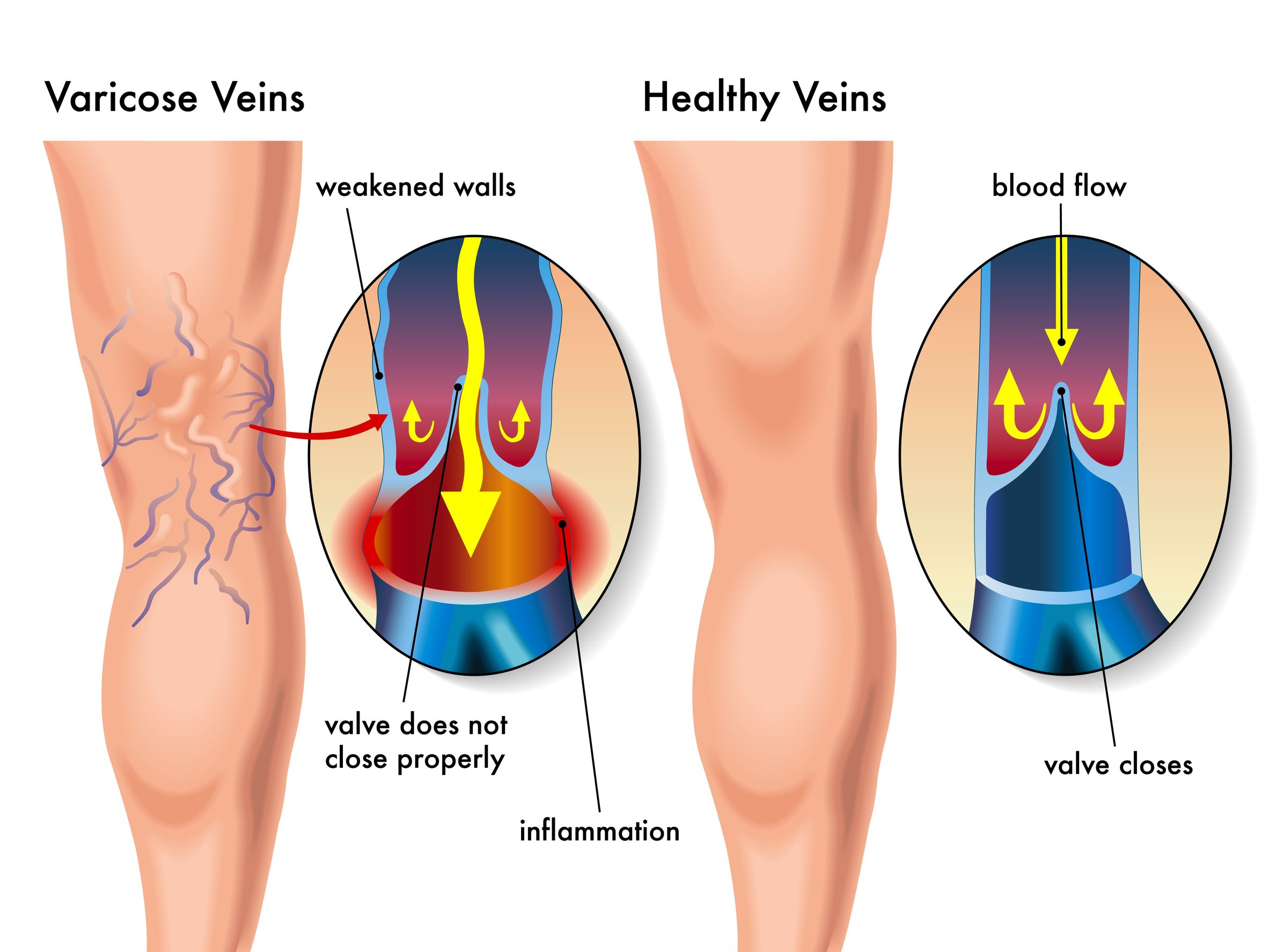Blood vessels encompass arteries, arterioles, veins, and capillaries and carry the essential oxygen to the tissues. While arteries carry the oxygen-rich blood from our heart to the tissues the varicose veins ensure the carriage of carbon dioxide enriched blood from them. In this sense, varicose veins are a common venous disease, an inadequate functioning of the veins.
In case of varicose veins, the vascular wall abnormally thickens or expands, so it does not perform properly its function. It does not efficiently carry the carbon dioxide enrich blood. Any vein may become varicose, but it most commonly affected in the legs, thighs, and feet but may develop elsewhere.



